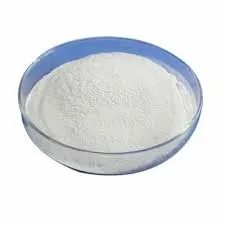
Nov . 25, 2024 08:30 Back to list
Improving Adhesion in Construction with Effective Mortar Bonding Solutions
Understanding Mortar Bonding Agents Enhancing Adhesion and Performance
Mortar bonding agents are specialized materials that play a crucial role in construction and masonry applications. These agents enhance the adhesion between mortar and various substrates, ensuring durability, strength, and longevity of the structures. In this article, we will explore the significance, types, and applications of mortar bonding agents.
At its core, a mortar bonding agent is designed to improve the bond strength of mortar, which is a mixture of cement, sand, water, and sometimes additional additives. The primary function of these agents is to create a strong interface between the mortar and the surfaces it adheres to, such as bricks, concrete blocks, or tiles. This improved bond is essential for ensuring that the mortar can withstand not only static loads but also dynamic forces like vibrations and temperature fluctuations.
There are several types of mortar bonding agents available on the market, each suited for different applications. One common type is the latex-based bonding agent. These are water-based emulsions that can be mixed with mortar to enhance its flexibility and adhesion properties. Latex agents are particularly useful in environments subject to movement or vibration, such as foundations, pool areas, and exterior walls.
Another type of bonding agent is the cement-based adhesive. This option is often pre-mixed and requires simply adding water before use. Cement-based bonding agents are advantageous because they provide excellent adhesion and can be used in high-strength applications. They are commonly used in floor applications, stucco, and tile installations.
mortar bonding agent

In addition to improving bond strength, mortar bonding agents can also offer other benefits. For instance, they often improve workability, allowing for better spreadability and ease of application. Some agents can also enhance the water resistance of mortar, making them ideal for exterior or wet environments. This is particularly important in preventing water infiltration, which can lead to structural damage and mold growth.
When choosing a mortar bonding agent, it is essential to consider the specific needs of a project. Factors such as the type of substrate, exposure conditions, and expected load should influence the selection process. Additionally, manufacturers often provide guidelines on how to properly use these agents to achieve the best results. Following these instructions will help ensure a solid and lasting bond.
Applications of mortar bonding agents are numerous and varied. They are commonly used in residential and commercial construction projects, including wall installations, tile laying, and repair work. In masonry restoration, bonding agents can be used to re-establish the bond between old mortar and new materials, extending the life of historic structures.
In conclusion, mortar bonding agents are vital in enhancing the performance and durability of masonry applications. By improving adhesion, flexibility, and overall strength, these agents contribute significantly to the longevity of construction projects. Whether through latex-based or cement-based options, understanding the role and proper application of bonding agents can lead to successful results in a variety of construction and repair endeavors. As the construction industry continues to evolve, the importance of high-quality bonding agents will remain a key consideration for builders and contractors alike.
-
Why HPMC is a Key Additive in Wall Putty Formulations
NewsAug.05,2025
-
Redispersible Powder in Decorative Renders: Function Meets Finish
NewsAug.05,2025
-
Redispersible Powder for Interior Wall Putty: Smooth Results Every Time
NewsAug.05,2025
-
HPMC’s Water Retention Capacity in Dry Mortar Applications
NewsAug.05,2025
-
HPMC Factory Contributions to Liquid Detergents
NewsAug.05,2025
-
How HPMC Factory Products Change Detergent Textures
NewsAug.05,2025







